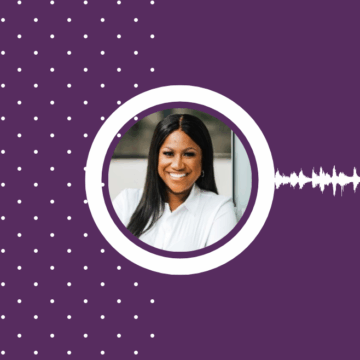Even in the best of times, juggling your finances can be a challenge. If you’ve recently had a change in income or face unplanned expenses, it can be even harder.
A caring GreenPath financial counselor is ready to help you understand options and take a look at not only current financial challenges, but also your entire financial picture.
“Greenpath helped me work through my debt in a way where I was comfortable and never felt overwhelmed. They have given me the tools to be debt free from loans and credit cards. They are understanding and always seemed to genuinely want to help you.”
Leanna | Pelahatchie, MS via ConsumerAffairs.com
While the trusted national nonprofit GreenPath Financial Wellness does not lend funds, our caring team can help you understand the difference between secured and unsecured loans.
You’re not alone if the difference between secured and unsecured loans is confusing. The good news is that seeking guidance on this topic is a fantastic step toward financial understanding! Whether you’re planning to buy a car, embark on a home improvement project, or just curious about the lending landscape, learning about secured and unsecured loans is a rewarding adventure that’ll empower you to make savvy decisions. You’ve got this!
Basically, a secured loan requires borrowers to offer collateral, while an unsecured loan does not. This difference affects your interest rate, borrowing limit, and repayment terms.
There are pros and cons to choosing a secured vs an unsecured loan, which is why we have highlighted the differences for you here.
Navigating the world of loans can be a bit overwhelming, but it’s also an essential part of managing our finances. Thankfully, there are experts and resources out there ready to help us understand the difference between secured and unsecured loans.
GreenPath does not lend funds, but we do lend a hand when it comes to understanding what options make sense for your financial situation.
As a trusted national nonprofit with caring, certified financial counselors ready to serve, you can make informed decisions that will set you on the right path toward your financial goals.
Secured Loans
Secured loans are protected by an asset. The item purchased, such as a home or a car, can be used as collateral. The lender will hold the deed or title until the loan is paid in full. Other items can be used to back a loan too. This includes stocks, bonds, or personal property.
Secured loans are the most common way to borrow large amounts of money. A lender is only going to loan a large sum with a promise that it will be repaid. Putting your home on the line is a way to make sure you will do all you can to repay the loan.
Secured loans are not just for new purchases. Secured loans can also be home equity loans or home equity lines of credit. These are based on the current value of your home minus the amount still owed. These loans use your home as collateral.
A secured loan means you are providing security that your loan will be repaid. The risk is if you can’t repay a secured loan, the lender can sell your collateral to pay off the loan.
Advantage of Secured Loans
- Lower Rates
- Higher Borrowing Limits
- Longer Repayment Terms
Examples of Secured Loans
- Mortgage – A mortgage is a loan to pay for a home. Your monthly mortgage payments will consist of the principal and interest, plus taxes and insurance.
- Home Equity Line of Credit – A home equity loan or line of credit (HELOC) allows you to borrow money using your home’s equity as collateral.
- Auto Loan – An auto loan is an auto financing option you can obtain through the dealer, a bank, or credit union.
- Boat Loan – A boat loan is a loan to pay for a boat. Similar to an auto loan, a boat loan involves a monthly payment and interest rate that is determined by a variety of factors.
- Recreational Vehicle Loan – A recreational vehicle loan is a loan to pay for a motor-home. It may also cover a travel trailer.
Unsecured Loan
Unsecured loans are the reverse of secured loans. They include things like credit cards, student loans, or personal (signature) loans. Lenders take more of a risk by making this loan, because there is no asset to recover in case of default. This is why the interest rates are higher. If you’re turned down for unsecured credit, you may still be able to obtain secured loans. But you must have something of value that can be used as collateral.
An unsecured lender believes that you can repay the loan because of your financial resources. You will be judged based on the five C’s of credit.
The Five C’s of Credit
- Character – can include credit score, employment history, and references
- Capacity – income and current debt
- Capital – money in savings or investment accounts
- Collateral – personal assets offered as collateral, like a home or car
- Conditions – the terms of the loan
These are yardsticks used to assess a borrower’s ability to repay the debt, and can include the borrower’s situation as well as general economic factors.
Note that the five C’s of credit are different for personal loans vs. business loans.
Examples of Unsecured Loans
- Credit Cards – There are different types of credit cards, but general credit cards bill once a month and charge interest if you do not pay the balance in full.
- Personal (Signature) Loans – These loans can be used for many purposes, and can vary from a few hundred to tens of thousands of dollars.
- Personal Lines of Credit – Similar to a credit card, a personal line of credit has an approved limit that you can use as needed. You can use this line of credit for almost anything, and you are only charged interest on the amount you spend.
- Student Loans – Student loans are used to pay for college and are available through both the Department of Education and private lenders. Although it is an unsecured loan, tax returns can be garnished to pay unpaid student loans.
- Some Home Improvement Loans
Frequently Asked Questions
Can I get a secured loan for debt consolidation?
Yes, you can use a secured loan, such as a home equity loan, for debt consolidation by offering collateral like your home or car. This can be a path to consolidate debt if you need lower interest rates, but remember that there are risks, such as losing the asset if you stop paying on the consolidation loan.
What is the minimum credit score for a secured loan?
The minimum credit score needed for a secured loan varies by lender, including banks and credit unions. Often, secured loans have more flexible credit requirements compared to unsecured loans, which can be helpful when consolidating credit card debtcredit card debt.
Can I get a secured loan to pay off debt?
Yes, you can get a secured loan to pay off debt, which might help if you’re considering a debt consolidation loan. It’s important to compare the pros and cons of debt consolidationpros and cons of debt consolidation and determine if it aligns with your financial goals.
What is an unsecured debt consolidation loan?
An unsecured debt consolidation loan allows you to combine multiple debts without using collateral. Because there is no asset backing the loan, you generally need a higher credit score to qualify, and interest rates may be higher.
Can I get an unsecured debt consolidation loan?
Yes, you can obtain an unsecured debt consolidation loan, but it’s important to compare options, such as asking your bank or using a debt consolidation calculator, to find the best fit. Understanding how you qualify for a debt consolidation loan can help in the decision-making process.
Can I consolidate unsecured debt?
Yes, you can consolidate unsecured debt either through an unsecured debt consolidation loan or a debt management programdebt management program. Evaluating the pros and cons of debt consolidation can help you determine the right approach, especially when considering whether debt management program vs. debt consolidation is the best fit for your needs.
GreenPath Financial Service
Free Debt Counseling
Take control of your finances, get tailored guidance and a hassle-free budgeting experience. GreenPath offers personalized advice on how to manage your money.










